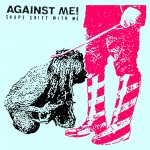
Libraries are essentially massive symbols of free speech: entire multi-level buildings filled with ideas, many of them contradictory and messy and even violent, available for free public consumption. They’re also perhaps the most classic targets of censorship, for the precise reasons that give them their value.
It’s fitting then, that Boston University’s Mugar Memorial Library was the chosen venue for Dean of Students Kenneth Elmore’s Monday conversation about the potential values of censorship and free speech in a university setting, titled simply, “Is There Ever a Benefit to Censorship?”
The talk was sponsored by the Mugar Greene Scholars as part of the group’s second annual Free Speech Installation. Other aspects of the installation include student art, films and interactive posters throughout the library, which will maintain a presence through Sunday.
Tom Casserly, an associate university librarian at Mugar, said Elmore was selected because of his affinity for social media and communications and his status as a lawyer, which helps him foster challenging, directed conversations. He said Elmore’s qualifications help him connect to students in a unique way.
“The goal is simply to have students give more capital thought to these important issues that face society, students as citizens of the world, and libraries that collect and share,” Casserly said.
Elmore began his conversation by framing common conceptions of censorship. While censorship is something people tend to blame on government, he argued, they censor themselves at least as harshly as any third party. Citing 24 rapid-fire examples of self-imposed censorship — including primetime word bleeping, book banning, sensitivity to genital depictions and speech-based expulsions — he primed the small audience to avoid falling back on popular notions or searching for easy answers.
“It seems that speech in the Western, American university system is as free as you can get,” Elmore said at the talk. “But we’re going to see that we’re not as free here from censorship as we might think.”
He then elaborated, relaying various accounts of students coming to him and asking him to censor another student’s speech, or to alter a course syllabus to circumvent material that may be considered offensive. Then, he turned the focus outward, asking students to act as an academic board and debate the values and risks of censoring certain materials.
Other current event topics included the University of Oklahoma fraternity debate and the censoring of individuals who may share classified national secrets, steering conversation to Edward Snowden, who leaked National Security Agency information beginning in 2013. There was dissent in the room about his ultimate value as a cultural figure. Like the nation at large, a few attendees saw him as a treasonous coward, while a few others championed him as an ethical hero.
What arose from the conversation was this: for the most part, censorship is an unwelcome and detrimental silencing of ideas, even when those ideas themselves may be harmful. The room seemed to agree that citizens and students should allow civil debate to decide an idea’s value, and even hate speech can serve as a valuable example of poor character. There are times, though, especially when the interest of children or public safety are involved, that censorship may be appropriate and even useful. The difficulty, then, is finding the line between what is unpleasant and what is harmful.
Sarah Eldredge, a sophomore in the College of Arts and Sciences, is a somewhat regular attendee of Elmore’s discussions and said she finds worth in the format.
“It’s valuable to talk to students you wouldn’t normally talk to. The value of a place like this is that you can go and have a deep discussion with people who aren’t your friends,” Eldredge said, “and it’s a good place to get dissenting opinions.”
Matthew Brennan, a senior in the College of Arts and Sciences, also attended the talk, finding sense in the relationship between open dialogue and censorship.
“Sometimes you just can’t have conversations that really challenge your opinions because your opinion is unpopular, and you’re afraid of backlash,” he said. “If you have an idea, you should at least be open to changing it, but you can’t if you’re being censored.”
Eldredge said Monday’s discussion was relevant to current social and academic environments that are striving for inclusion and sensitivity.
“A lot of curriculums are changing to reflect changing standards of what’s acceptable to read, talk about and write about, and we need to be aware of that so we don’t go too far in the wrong direction,” she said. “We talk about creating safe spaces for students and trigger warnings, and we’re all very concerned about being sensitive about people’s emotional needs, but sometimes, I think it’s also okay to say it how it is and be a little bit more blunt.”














